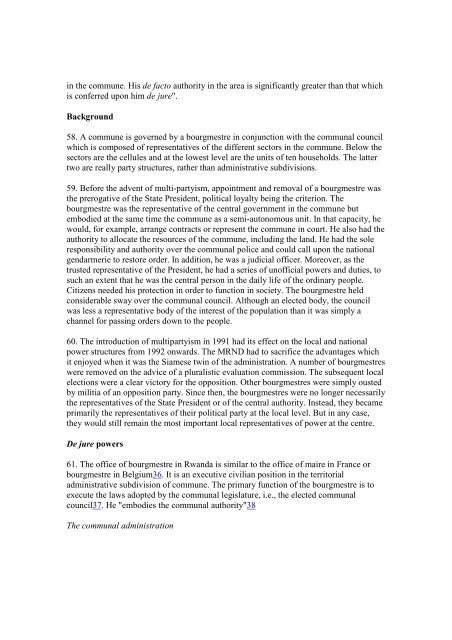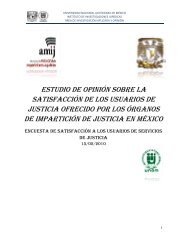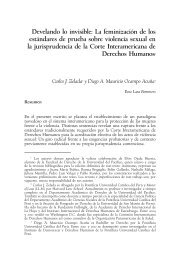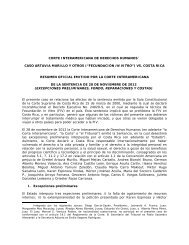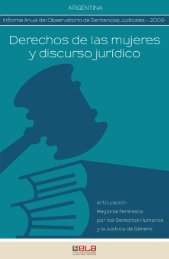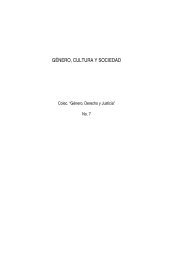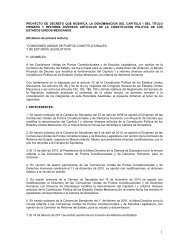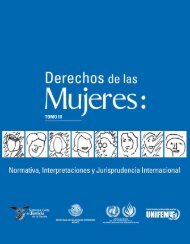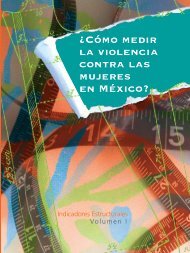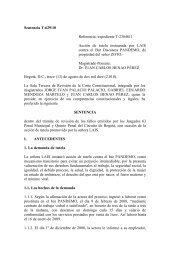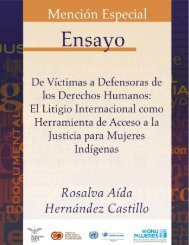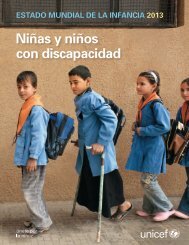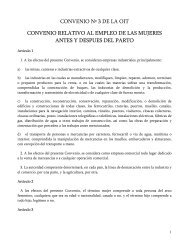Case No. ICTR-96-4-T - International Criminal Tribunal for Rwanda
Case No. ICTR-96-4-T - International Criminal Tribunal for Rwanda
Case No. ICTR-96-4-T - International Criminal Tribunal for Rwanda
- No tags were found...
You also want an ePaper? Increase the reach of your titles
YUMPU automatically turns print PDFs into web optimized ePapers that Google loves.
in the commune. His de facto authority in the area is significantly greater than that whichis conferred upon him de jure".Background58. A commune is governed by a bourgmestre in conjunction with the communal councilwhich is composed of representatives of the different sectors in the commune. Below thesectors are the cellules and at the lowest level are the units of ten households. The lattertwo are really party structures, rather than administrative subdivisions.59. Be<strong>for</strong>e the advent of multi-partyism, appointment and removal of a bourgmestre wasthe prerogative of the State President, political loyalty being the criterion. Thebourgmestre was the representative of the central government in the commune butembodied at the same time the commune as a semi-autonomous unit. In that capacity, hewould, <strong>for</strong> example, arrange contracts or represent the commune in court. He also had theauthority to allocate the resources of the commune, including the land. He had the soleresponsibility and authority over the communal police and could call upon the nationalgendarmerie to restore order. In addition, he was a judicial officer. Moreover, as thetrusted representative of the President, he had a series of unofficial powers and duties, tosuch an extent that he was the central person in the daily life of the ordinary people.Citizens needed his protection in order to function in society. The bourgmestre heldconsiderable sway over the communal council. Although an elected body, the councilwas less a representative body of the interest of the population than it was simply achannel <strong>for</strong> passing orders down to the people.60. The introduction of multipartyism in 1991 had its effect on the local and nationalpower structures from 1992 onwards. The MRND had to sacrifice the advantages whichit enjoyed when it was the Siamese twin of the administration. A number of bourgmestreswere removed on the advice of a pluralistic evaluation commission. The subsequent localelections were a clear victory <strong>for</strong> the opposition. Other bourgmestres were simply oustedby militia of an opposition party. Since then, the bourgmestres were no longer necessarilythe representatives of the State President or of the central authority. Instead, they becameprimarily the representatives of their political party at the local level. But in any case,they would still remain the most important local representatives of power at the centre.De jure powers61. The office of bourgmestre in <strong>Rwanda</strong> is similar to the office of maire in France orbourgmestre in Belgium36. It is an executive civilian position in the territorialadministrative subdivision of commune. The primary function of the bourgmestre is toexecute the laws adopted by the communal legislature, i.e., the elected communalcouncil37. He "embodies the communal authority"38The communal administration


